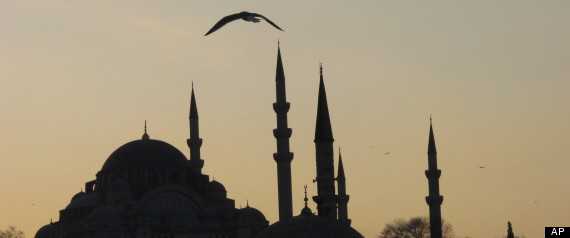It was reported on December 3, 2008 in the media that the costs of the universities have been rising at more than twice the rate as the cost of living. Thus, universities are no longer affordable. If nothing is done, the cost will be prohibitive, but still more people will apply and will keep them open. It is a supply and demand situation. A better idea is of course to analyze the various costs of learning, discard the unnecessary, and reduce the cost to an affordable level.
I made my high school education in Turkey and my university education in Germany. My high school education was equivalent to the French high schools of 1930’s which were the best in Europe. With what I learned in h igh school, I got directly in Chemical Engineering at the Technical University in Darmstadt.
Unfortunately the American High school is much weaker and a four-year college is needed to bring the high school graduate to a level at which he can be starting a professional studies. [See: Allan Bloom, “The Closing of the American mind”, Simon & Schuster, 1987]
Thus, a first cost–cutting would be possible by strengthening the high school to the level of a European high school and thus, saving at least a few years. That would include a course in philosophy in 12th grade. That is perfectly possible. My grand-daughter Erin took university-level courses in high school and now has done the 4-year college in three years. But the highest gain would be obtained, when high school level courses would become strong enough not to need the 4-year college. At present rates, this would be a saving o about $120,000 per student. Youngsters would also eliminate four years from the duration of their education. They would start four years earlier in life.
A big difference between a German University and an American one, is that in Germany the university is just a place of learning. The living is done outside and outside of the interest of the university. Students live in private homes., as a sort of guests.. Many families have extra rooms they can rent. If one is lucky, as I was, one can be treated almost like a family member.
In American universities, learning and living are done in the same campus. Students, at least the first year, live in a new student society, where excessive drinking, hazing, and similar youthful acts are common. I propose to get rid of the campus living , primarily to cut costs. The together-living during the first year has also some advantages. One makes friends, just like in a boarding school or in the army. Eating together in the same cafeterias or restaurants will do just as well and Campus living can be eliminated. I understand that fraternities and sororities are not in the University budget.
Information coming from one nearby university indicates that fighting the energy waste might tremendously reduce operating costs. As example, the elimination of cafeteria trays is mentioned. The washing of the trays is eliminated which is an energy-intensive operation. Also, without trays, students do not take things they are not going to eat and food waste is reduced.
At Lehigh University, in Bethlehem, PA., some of my friends professors were experimenting with a new idea. They thought that, in stead of teaching the students by many second-class teachers, it is better to teach them by videos, or DVD’s, of the best professors and have an assistant present to answer questions. This too would save considerable money and besides, improve the teaching. Universities would then retain only a few of the very best professors. Those DVD’s would have to be often up-dated.
Of course teaching methods can be improved to cut costs. I remember one Associate Professor of Chemical Engineering in the U.S. who spent his time in class in developing and integrating complex differential equations. Since he was not teaching mathematics, he could have given us prints that show how the integration is done, and he could have taught the chemical engineering facts that he was supposed to teach during that time. If he would do that, he would need to teach a one hour a week course, in stead of three. Of course there are all sorts of other ways to cut costs by planning the lectures intelligently.
One of the heavy expenses of an American University are its sports teams and a high salaried coach in every sport. I propose to form an outside sports club and get the sports out of the university budget. Students who are interested in sports will become members of the Club. I was told that Football is a generator of income. I still think that show-sports should be divorced from the university.
These are some of the cost cutting ways that came to my mind. I am sure there are others too. I will conclude that it is perfectly feasible to make the universities affordable.
T H E O R HAN T A R H A N L E T T E R
(Issued twice a month by M. Orhan Tarhan and distributed free by e-mail ).
Article No: 142 December 15 , 2008
……………………………………………………………………………………………..
To Readers’ Attention: Any one who wishes to receive THE ORHAN TARHAN LETTER should sent an e-mail to orhant@verizon.net with his/her full name, e-mail address , and PLEASE phone number, in case there is an interruption caused by the server, or in case of e-mail address change. It is free. Comments are welcome. These LETTERs are also published in AmericanChronicle.com





